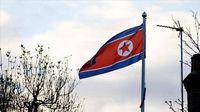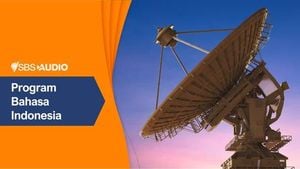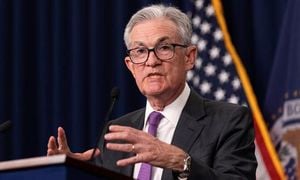North Korea has sharply criticized U.S. President Donald Trump’s recent decision to relax regulations on arms exports, claiming the move is designed to exacerbate global conflicts for profit and geopolitical gain. On April 9, 2025, Trump signed an executive order that initiated a review of existing restrictions on U.S. military equipment exports, a step that North Korea views as a blatant endorsement of war.
In a statement released by the state-run Korean Central News Agency (KCNA) on April 20, 2025, Pyongyang condemned the executive order, asserting that arms sales for the United States are not merely a means of generating revenue but rather a crucial instrument of an aggressive foreign policy aimed at hegemony. “For the United States, arms sale is not merely a money-making scheme to satisfy monetary desire but a key means of pursuing an aggressive foreign policy and hegemonic ambitions,” the KCNA declared.
The North Korean government linked Trump’s decision to ongoing military conflicts in Ukraine and the Gaza Strip, accusing the U.S. of supplying military equipment to its allies, which they claim has prolonged these conflicts under the guise of diplomacy. The KCNA emphasized, “The U.S. measure to ease arms export regulations precisely means the one to expand wars.”
According to the KCNA, U.S. arms exports have surged in recent years, with many of these weapons reportedly ending up in the hands of what they referred to as "war maniacs" in both Europe and the Middle East. This assertion points to a growing concern in Pyongyang regarding the implications of U.S. arms sales on regional stability.
The KCNA further accused Washington of fueling and extending wars while pretending to promote peace and dialogue. They noted a consistent pattern of U.S. weapons falling into the hands of proxy forces engaged in conflict, suggesting that the U.S. is using arms sales as a tactic to manipulate global power dynamics.
While the North Korean government did not specify any concrete actions it might take in response to Trump's decision, they labeled the U.S. move as “dangerous” and indicated that they would closely monitor American policy decisions moving forward. The statement underscores the heightened tensions between the two nations, particularly in the context of ongoing military engagements around the world.
This condemnation from Pyongyang comes at a time when the international community is increasingly concerned about the implications of U.S. arms sales on global peace efforts. Critics argue that such policies not only exacerbate existing conflicts but also contribute to a broader climate of instability.
As the situation unfolds, the implications of Trump’s arms export policy may resonate far beyond the immediate geopolitical landscape, potentially affecting U.S. relations with allies and adversaries alike. The North Korean response highlights the sensitive nature of military exports and the potential for escalation in a world already fraught with conflict.




